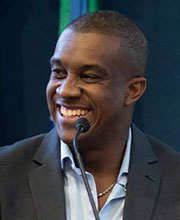
Translanguaging “(...) is often (mis)taken as a teaching strategy - hence ‘pedagogical translanguaging’ – for minoritized and racialised bilingual learners, whereas in fact it originated in the Welsh revitalisation context as an agentive learner strategy to maximize the learner’s bilingual capacity in learning” (Wei, 2022, p. 1). To use Translanguaging and Internationalisation as a pedagogical strategy requires co-learning which seeks to reposition the teacher vis-à-vis the learner, as co-learners in their symbolic power relations, and emphasizes the importance of respecting all languages and knowledge gained in all languages and the need to create opportunities for different ways of learning and talking about learning. At the same time, Translanguaging and Internationalisation are more than a pedagogical approach. They are a political stance that aims to be reconstitutive of language status, of language ideologies, and of authorities and power relations in learning. Consequently, the effects of adopting a Translanguaging and Internationalisation stance cannot and should not be measured in terms of conventional test results. Learners’ as well as the teachers’ voices and experiences in the Global South are crucial. A different framing is therefore needed with inclusion and social justice at its heart (Pennycook; Makoni, 2020; Finex and Makalela, 2021; Wei, 2022).
Kleber Aparecido da Silva hold a PhD in Language Studies from the State University of São Paulo (2010), a Master´s degree in Applied Linguistics from the University of Campinas (2005) and a a Bachelor´s degree in English Language from the Federal University of Ouro Preto (2002). He carried out postdoctoral studies in the Department of Applied Linguistics, University of Campinas, from 2014 to 2015; postdoctoral studies in Institute of Applied Linguistics and Language Studies, Pontifical Catholic University of São Paulo, from 2018 to 2019; postdoctoral studies in Linguistics in the Language Institute, Federal University of Santa Catarina, from 2019-2020; postdoctoral studies in Applied Linguistics in College of the Liberal Arts, The Pennsylvania State University, USA, from 2020-2021. I am currently pursuing post-doctoral studies at Federal University of Minas Gerais, Brazil; in Language Didactics at the University of Geneva/Switzerland; and in Multilingual Education and Literacy at the University of Witwatersand, South Africa. His main field of interest is in the broad area of language, decoloniality, culture and teacher education, which also includes gender, race and linguistic education; race and coloniality, language, discourse and identity practices; (multi)literacy and critical education of language teachers; critical theories and pedagogies and decolonial practices in the production of knowledge.

